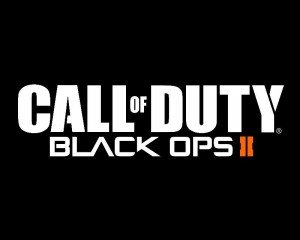
‘Call of Duty: Black Ops 2′ is due out in November
The gaming industry has largely adopted the “more is better” attitude. Not more games, not more stories, not more gameplay elements, features, or modes; just more sequels. Love them or hate them, sequels, prequels, and reboots are a huge part of the entertainment industry as a whole, not just the video game industry. Many of the gaming industry’s heavy hitters are coming back this year, and next year. The Call of Duty franchise will be making an appearance as Call of Duty: Black Ops II in November, Assassin’s Creed III will rear it’s head in late October, and SimCity will return in February, along with BioShock Infinite. Is having more of your favorite games a bad thing? Are sequels ruining the game industry as we know it? Let’s look at some pros, cons, facts, and falsehoods.
The Publishers Did This!
A lot of people demonize the publishers of video games because of their penchant for franchise games. Publishers love the idea of sequels, and who could blame them? Sequels are one of the least risky ventures in the video game industry. If a game is a sequel to a well-known, commercially successful franchise, it’s more likely to become a success, as well. If the game is an entirely new intellectual property, with no examples of past success, it is much more likely to fail. Unlike other industries, as technology increases, production costs do not drop. In the entertainment industry (including the game industry), new advances in technology typically require more work from the developers. For example, as graphical technology increases, it takes artists more time to model out a character, which either increases production time, or requires more artists to even it out. Major video game releases cost hundreds of millions of dollars, most of which is supplied by publishers. Since it’s their money to invest, they are probably going to make the safer choice and pick the sequel. Since the main goal of publishers it to turn a profit, it all makes perfect sense.
A Hunger for More!

‘Assassin’s Creed III’ is due out in late October
Often, the rights for sequels and other games in a series is held by the publishers of the previous game. If a developer has been working on a particular series for an extended period of time, they might want to take a break from that game world. Unfortunately, fan desire for more games may press the publisher into continuing the series, whether it’s with the original developer, or with a third party developer. This often results in games that are either clones of prior games, or so different that fans have a hard time making a connection to the series. Bethesda Softworks, makers of Elder Scrolls V: Skyrim and Fallout 3, seems to have found a comfortable middle ground, allowing the developer to alternate between it’s successful games.
No More New Ideas
A lot of people say that sequels are made because the developers have run out of cool new ideas. This is most certainly not true. There are plenty of great, new ideas out there in the gaming industry. Developers are constantly hiring new blood, infused with fresh ideas, concepts, and stories. The problem is, these concepts are often untested, unpolished, and, frankly, can’t warrant enough interest from publishers. If you’re looking for a new, innovative game, look at the indie gaming scene. Mega-hit Minecraft is an indie game that has performed extremely well, spawning an entirely new genre of games in it’s wake.
A Bright Future
Sequels will not be going away. They have proven to be a successful business model in the gaming industry. However, fans should take notice that there will be a new alternative to the standard game development process that should allow for more original ideas to be released to the public. In recent months, some clever game developers have bypassed publishers altogether with the help of crowd-funding websites like Kickstarter or Indiegogo, which allow the developers to go directly to their target audience and ask for cash to support their game developing habits. Many of these games are entirely new ideas, while others are concepts for sequels to unknown, or obscure, franchises. Double Fine raised $3,336,371 (with a $400,000 goal) to make Double Fine Adventure (working title). Obsidian Entertainment recently overshot their $1,100,000 goal on a Kickstarter project entitled Project Eternity, getting $2,041,205 pledged to their cause at the time of this writing. This new option available to developers should allow a balance to the sequel versus new intellectual property scale that has been off-balanced for quite some time.

